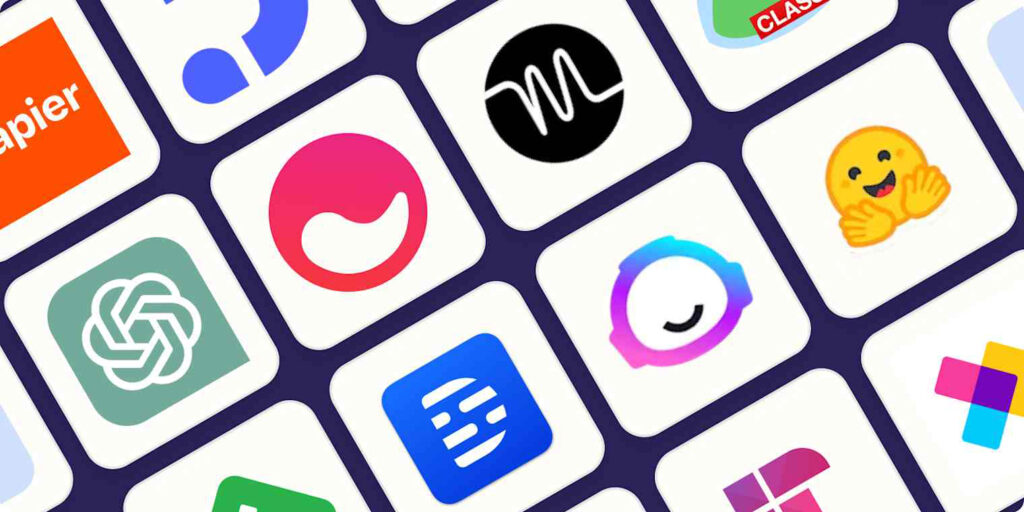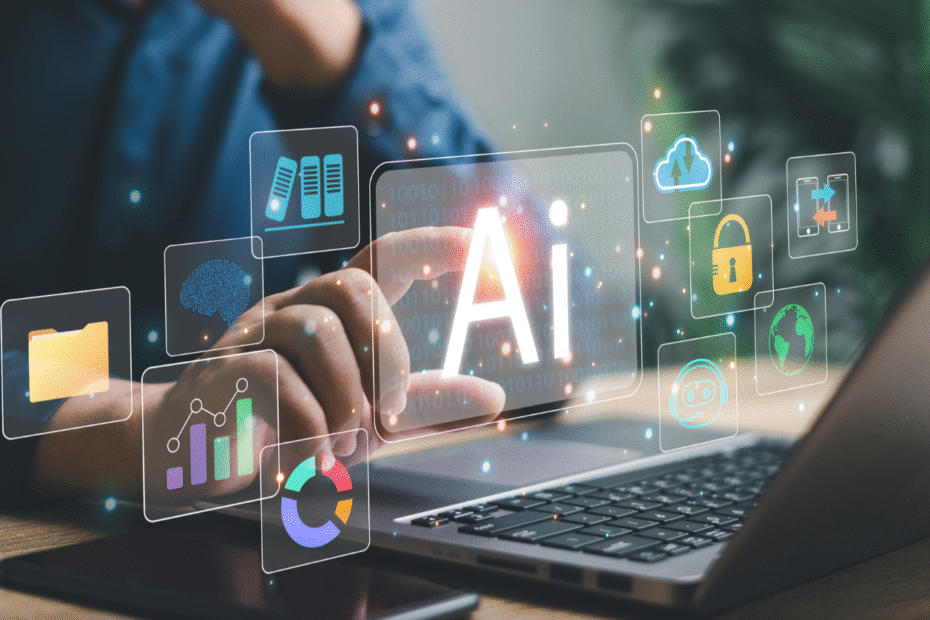Artificial Intelligence is set to reshape our workplaces. Companies are itching to incorporate AI into their systems with new tools that are helping businesses into streamlining their work processes. The question that arises in the end: are we really ready for it? This article is set to explore the incorporation of Artificial intelligence tools in the workforce, the growing trends of AI usage in the workplace and how are these AI tools making our systems and workflows more efficient.
AI has always been in the technological stratosphere. We have seen AI do wonders in the fields of manufacturing, medicine, and so much more. So why is it that a concept used by industries for so long is now being flagged as a danger to the corporate workforce. The answer is simple, Generative AI. Generative AI is a subset of artificial intelligence when explained more broadly. There is a long history behind this technology. The main focus in on Generative AI now since it has been molded and worked on for the past three years to be used by the general public. It is translate between text, images, audio and even code. Now we are seeing this technology applied to lots of other types of patterns, including things like DNA.
The Rise of ChatGPT
The turning point of Generative AI was seen after the launch of ChatGPT in 2022. It was for the first time any user could communicate and directly interact with a Generative AI system. Since AI’s explosion into public consciousness, we have also seen a huge push from businesses to harness the power of Generative AI in their products. We are seeing a monumental rise of AI being used in tech, search engines, and even daily tasks. With companies like google have been launching different AI products with different functionalities to cater to the general public as well as other businesses who want to apply those functionalities.

How are Artificial Intelligence Tools Helping?
With this huge surge of AI being used by the masses, it is an obvious thought that it will leave its mark on our workplaces as well. Businesses are now trying to adapt around the fact that sooner or later they will have to work alongside with AI without losing the human touch in their workflows. With all the confusion and fear it is important to note that not all AI is bad. With the use of carefully crafted artificial intelligence tools, companies can make their systems more efficient and the processes more streamlined, in-turn creating an efficient workplace.
Lets take a closer look how these artificial intelligence tools are helping the workforce.
Recruitment and Other HR Processes
Recruitment and employee onboarding has always been deemed to be a manual task, taking up more time of the workforce, more time than necessary. Artificial intelligence tools can be ideal for such processes. By automating resume filtering, companies won’t have to go through the strenuous task of sifting through hundreds of resumes. These tools can filter the resumes according to the information fed to it, by choosing the candidates that are a potential fit for the company.
Workplace Optimization
Companies are already using Artificial Intelligence tools to boost workplace productivity by optimizing basic utilities such as electricity, room temperature and heating. AI sensors can be used to make the workplace smarter. By creating an optimal, personalized workplace environment for your staff, you’ll be able to boost productivity and employee engagement.
Staff-AI Collaboration
Although it may see daunting how AI is slowly creating a space for itself in the workplace, it is no surprise that sooner or later we might have to work in direct collaboration with AI. This being the new normal has urged companies to adapt their routines and their processes with AI by the introduction of artificial intelligence tools. Businesses collecting date in huge numbers can use AI in analytics to have more refined data reporting, which can lead to smoother decision making. Artificial Intelligence tools can help employees share data and other information internally with the help of in-house chatbots.
Through AI, semantic search, and natural language processing, it will be easier for people to find what they are looking for.
Intelligent Procurement
With the use of artificial intelligence tools, Companies can now recognize any compliance issues, and can quickly find out instances of fraud. By automating procurement processes. AI can enable a optimized tasks, so that things become more actionable within seconds to minutes, rather than hours to days.
Increased Workplace Productivity
Incorporating AI into the workplace and augmenting human tasks with that of artificial intelligence tools will lead to increased productivity. Organizations have now built AI in their workplace for this very reason. As AI focuses on more menial and mundane tasks, Humans are left with more complex issues to sort out, therefore making it more productive and efficient.
Final Thoughts
The evolution of Artificial Intelligence tools in the workplace is no longer a matter of speculation—it’s our reality. From recruitment to procurement, AI is quietly but powerfully reshaping how we work, collaborate, and make decisions. While the fear of replacement is understandable, the real opportunity lies in augmentation rather than elimination. The key is to integrate these tools in ways that enhance human capability, not overshadow it.
Businesses that proactively adopt and adapt to this transformation will stand ahead of the curve, creating efficient workflows and empowering their teams to focus on high-impact tasks. Artificial intelligence tools in the workplace aren’t just about automation—they’re about innovation, efficiency, and the future of work.
To dive deeper into the role of AI in transforming the workforce, visit the GeekyFest and explore trends, tools, and real-world applications of Artificial Intelligence in business, and stay ahead in the age of digital transformation.
FAQs
- Are artificial intelligence tools replacing human workers?
Not entirely. While AI can automate repetitive tasks, it is primarily being used to augment human roles, freeing up employees to focus on more complex, creative, and strategic work. - How can AI improve HR processes like hiring?
AI tools can filter resumes, analyze candidate profiles, and even conduct preliminary assessments, making hiring faster and more targeted while reducing human bias. - What types of businesses benefit most from AI tools?
Virtually all sectors—from tech to retail to manufacturing—can benefit. However, data-heavy industries like finance, logistics, and digital marketing see the fastest ROI with AI integration. - What are the risks of incorporating AI into workplace systems?
Risks include data privacy concerns, overdependence on automation, and potential bias in AI algorithms. Companies must implement proper governance and oversight to ensure responsible AI use. - Is it expensive to incorporate AI tools into a company’s systems?
The cost varies. While enterprise-grade tools can be pricey, many scalable AI solutions are now available for small to medium-sized businesses, often with subscription models or free trials.


